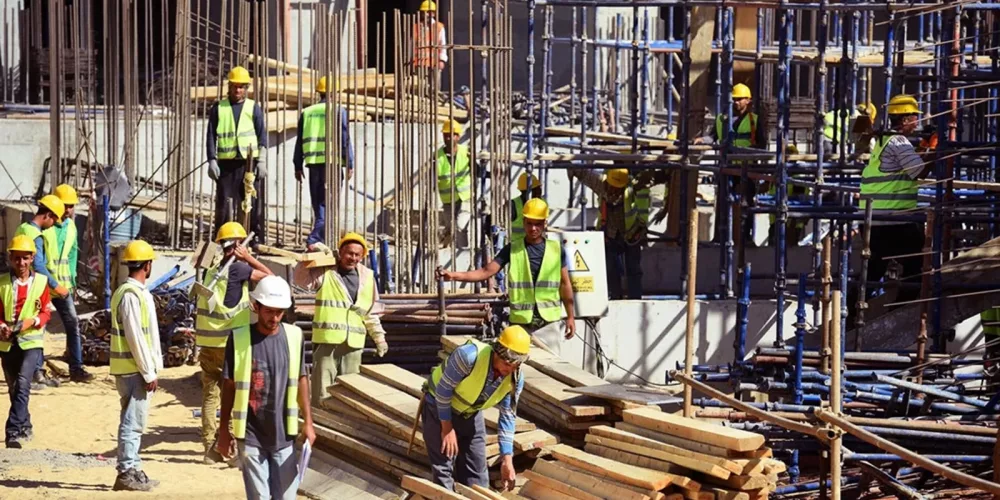The “Committee for Justice” (CFJ) has stated that the conditions of workers in Egypt reflect a worsening crisis of human rights and economic violations that undermine their ability to live with dignity. Workers face low wages, unsafe working conditions, and insufficient legal safeguards to protect them from arbitrary treatment. In commitment to defending human rights and promoting social justice, CFJ collaborates with UN mechanisms to provide an accurate depiction of the realities faced by Egyptian workers and to highlight systematic violations. This effort aims to encourage relevant authorities to take concrete steps to improve workers’ conditions and alleviate their suffering.
As part of this collaboration, CFJ submitted a detailed report to the Universal Periodic Review (UPR) team at the United Nations during the fourth review of Egypt’s human rights record in July 2024. This report focused on workers’ rights in Egypt and was referenced by the UN committee in several areas of its final report. Based on CFJ’s recommendations, the UN urged Egyptian authorities to ratify the six remaining International Labour Organization (ILO) conventions, including Conventions 187, 155, 156, 175, 183, and 189.
The UN report also highlighted a CFJ observation regarding workers in Gharbia Governorate who went on strike in February 2024, demanding the implementation of the new minimum wage based on employee grades. The committee emphasized challenges related to occupational health and safety and noted that informal workers lack legal and social protections in case of workplace accidents. CFJ recommended reviewing labor laws to align them with ILO conventions and expanding healthcare and social insurance protections.
Furthermore, the UN report addressed CFJ’s concerns about the prevalence of unregulated child labor, recommending improved coordination between the National Council for Childhood and Motherhood and governmental bodies to protect children’s rights.
CFJ’s report provided a comprehensive assessment of workers’ rights in Egypt over the past five years, examining the impact of recent economic and political changes on labor justice. It highlighted the economic burdens faced by workers due to rising prices of essential goods and services. Despite increases in minimum wages in both public and private sectors, the exclusion of workers in small and micro-enterprises—who constitute the majority of the labor force—has exacerbated labor protests and heightened workers’ sense of marginalization.
The report also reviewed the implementation of recommendations made during Egypt’s previous UPR in 2019, which included 19 recommendations related to workers’ rights. While the government accepted some of these recommendations, their implementation remained limited. Laws and practices that restrict workers’ rights to protest and express their demands, as well as constraints on forming independent trade unions, persisted.
CFJ documented numerous strikes and sit-ins in Egypt between January and March 2024. These protests arose from unmet economic and social demands and spanned various sectors, including journalism, industry, and agriculture. Workers called for wage increases, implementation of minimum wages, and improved working conditions. Many of these protests were met with repressive responses from companies and, at times, security forces, resulting in suspensions or arrests of some workers.
The report also drew attention to the growing phenomenon of arbitrary job terminations without fair investigations. It highlighted cases of dismissals under recent amendments to the Civil Service Law, which grant authorities broad powers to terminate employees on vague grounds, undermining workers’ rights and opening the door to politicized decisions.
Additionally, the report addressed violations related to workplace safety. Despite laws requiring employers to ensure safe work environments, several serious incidents occurred in 2024, such as factory collapses and poor equipment maintenance, leading to fatalities and injuries among workers. The report also highlighted the widespread issue of child labor in hazardous conditions, citing a tragic accident in which 16 girls lost their lives due to unsafe transportation to work.
The report concluded with recommendations urging Egypt to adhere to international labor rights standards by amending local laws to align with ILO conventions, increasing legal protections for workers in informal sectors, and promoting the freedom to establish independent unions. It also called for urgent measures to ensure worker safety and address discrimination, particularly against women in informal sectors.






